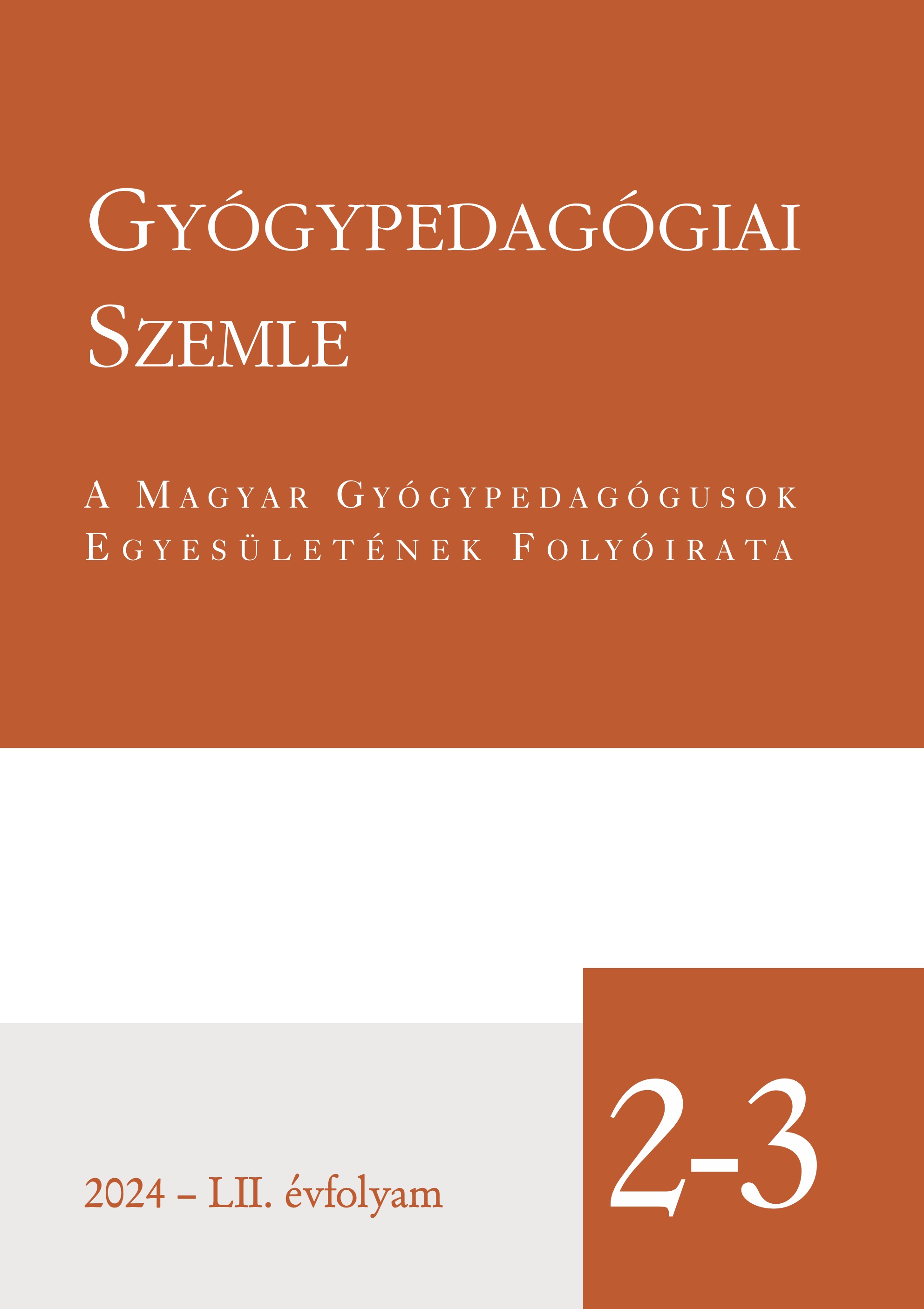Ideális iskolai környezet ADHD-val diagnosztizált tanulók számára. Tanulói és szakértői meglátások
DOI:
https://doi.org/10.52092/gyosze.2024.2-3.7Kulcsszavak:
ADHD, támogatási szükséglet, szakértői és tanulói szempontok, támogató iskolai és tanítási környezetAbsztrakt
Háttér és célok: Kutatásunk célja az volt, hogy feltérképezzük az ADHD-val diagnosztizált tanulókat támogató iskolai környezet jellegzetességeit, továbbá, hogy az érintett tanulók, illetve a szakértők megkérdezésével gyakorlati javaslatokat gyűjtsünk a célcsoport oktatásához, melyek a kutatás befejeztével beépíthetővé válnak az őket nevelő iskolák mindennapi tevékenységébe.
Módszer: Különnevelő intézményben tanuló diákokkal és szakértőkkel egyaránt félig strukturált interjú keretein belül kifejezetten feltáró jelleggel vizsgáltuk a támogató iskolai környezetről való elképzeléseiket.
Eredmények: Az interjúk során megkérdezett tanulók és a szakértők megközelítőleg ugyanolyannak írták le a megfelelő iskolai környezetet. Különbség abban mutatkozott meg, hogy néhány szakértő nem támogatta a házi feladat feladását, továbbá, a tanulók egyike sem választaná az egész napos iskolát.
Következtetések: Az iskolai környezet az érintett tanulók számára megfelelőbbé tehető szemléletváltással és könnyen megvalósítható változtatásokkal. A szakértők és a tanulók által leírt környezet jellegzetességeinek egyezéséből következtethetünk arra, hogy ahhoz, hogy megtegyük az első lépéseket az ADHD-val diagnosztizált tanulókat támogató iskolai környezet megteremtése felé, elegendő a tanulók véleményének meghallgatása, a „Semmit rólunk nélkülünk” elvet követve.
Kulcsszavak: ADHD, támogatási szükséglet, szakértői és tanulói szempontok, támogató iskolai és tanítási környezet

